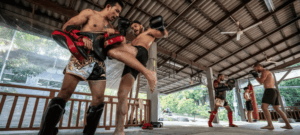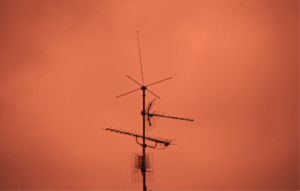Every year, thousands of travelers step off planes into the sticky heat of Thailand, not just chasing adventure or fights, but something much deeper: transformation. For many, training Muay Thai in its birthplace is a pilgrimage of personal evolution. But with the surge of foreign fighters pouring into camps across the country, there’s a growing question hovering in the humid air: Is Muay Thai tourism strengthening the sport, or diluting its sacred traditions?
The Roots of Muay Thai
Muay Thai, often called “The Art of Eight Limbs,” has centuries-old roots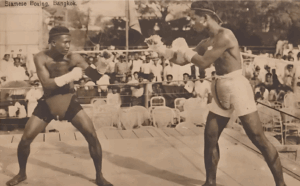 in Thai history. Originating as a battlefield martial art used by Siamese soldiers, it evolved into a revered sport and cultural tradition. Beyond the punches, kicks, elbows, and knees, Muay Thai is steeped in rituals honoring teachers, ancestors, and the Buddhist faith. Every fight, every camp, every ceremony is a thread in the intricate tapestry of Thai culture. To train Muay Thai is, in a way, to step into this living history.
in Thai history. Originating as a battlefield martial art used by Siamese soldiers, it evolved into a revered sport and cultural tradition. Beyond the punches, kicks, elbows, and knees, Muay Thai is steeped in rituals honoring teachers, ancestors, and the Buddhist faith. Every fight, every camp, every ceremony is a thread in the intricate tapestry of Thai culture. To train Muay Thai is, in a way, to step into this living history.
The Power of Personal Transformation
Spend even a few weeks training in Thailand, and you’ll hear the same story told a hundred different ways. The young man, burnt out from a corporate job who finds purpose again in the clinch. The woman recovering from a brutal breakup who rediscovers her strength between rounds on the pads. The addict who swaps vices for discipline, trading late nights for early morning road runs along misty jungle trails.
Thailand offers something Western gyms often can’t: full immersion. Here, you wake up to the sound of roosters, run in the humid dawn, and sweat out your weaknesses twice a day under the brutal sun. You eat simply. You sleep early. You strip away distractions until all that’s left is the fight – and yourself.
For many, the transformation is profound. They arrive seeking fitness or fighting skills. They leave with humility, discipline, and a clarity of purpose that reshapes their entire life. Muay Thai isn’t just a workout here; it’s a way of being.
The Rise of Muay Thai Tourism
Just ten or fifteen years ago, training Muay Thai in Thailand was mostly reserved for the hardcore: serious fighters willing to brave language barriers, remote camps, and harsh conditions. But the explosion of MMA, social media, and “fitness tourism” changed everything.
Today, Muay Thai camps dot the beaches of Phuket, sprawl across the bustle of Bangkok, and nestle into the quiet mountains of Chiang Mai. Many camps now cater directly to foreigners, offering package deals that bundle training, accommodation, meal plans, and even visa support.
On the surface, it’s a win-win. Camps receive a steady income, local economies boom, and more people worldwide gain exposure to Thailand’s most revered martial art. Fighters of all levels, from first-timers to pros, can find a place that fits their goals, budget, and lifestyle.
But with this boom certainly comes some inevitable tension.
Tradition vs. Commercialization
Speak to older Thai fighters or traditional gym owners, and you’ll hear a recurring concern: commercialization risks watering down Muay Thai’s soul.
Some “tourist camps” are accused of cutting corners. Rituals like the Wai Kru Ram Muay – a traditional dance performed before fights to honor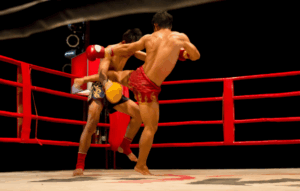 teachers and ancestors – are sometimes skipped or rushed. Fighters might also be encouraged to step into a ring after only a few weeks of training, chasing the experience rather than the mastery.
teachers and ancestors – are sometimes skipped or rushed. Fighters might also be encouraged to step into a ring after only a few weeks of training, chasing the experience rather than the mastery.
The fear isn’t just about respect; it’s about preservation. Muay Thai is deeply entwined with Thai history, Buddhism, and national identity. When stripped of its rituals and cultural depth, some argue, it risks becoming just another fitness class – exoticized and commodified.
Yet many Thai trainers and gym owners see it differently. They view the global interest as a chance to ensure Muay Thai’s survival in an increasingly modern, Westernized Thailand. More students mean more financial stability for gyms. More eyes on Muay Thai mean greater recognition and opportunities for Thai fighters to compete internationally.
Two Sides of the Same Coin
The truth, as always, lies somewhere in between.
Yes, some camps definitely cater more to Instagram influencers than serious fighters. Yes, some visitors approach Muay Thai with less reverence than it deserves. But even so, something remarkable happens to a lot of the people who come.
The brutal honesty of Muay Thai – its demand for endurance, humility, and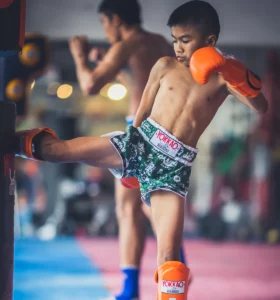 resilience – tends to carve through ego. Tourists who arrive seeking flashy kicks for their social media channels often leave with a new respect for the craft. Training alongside Thai kids who fight to feed their families can shift perspectives fast.
resilience – tends to carve through ego. Tourists who arrive seeking flashy kicks for their social media channels often leave with a new respect for the craft. Training alongside Thai kids who fight to feed their families can shift perspectives fast.
In many ways, even the “tourist” version of Muay Thai serves as a gateway. It introduces people to the art’s deeper meanings. Some foreigners go on to compete seriously. Others return home to teach, spreading Muay Thai’s philosophy of respect, hard work, and honor far beyond Thailand’s borders.
Meanwhile, many Thai camps have found ways to blend tradition and modernization without losing the soul of the art. They incorporate rituals, emphasize respect for teachers, and educate foreign students about the cultural significance behind each movement and practice.
Choosing the Right Camp: A Matter of Respect
For travelers eager to experience Muay Thai in Thailand, choosing the right camp is crucial.
Look for gyms that emphasize traditional practices like the Wai Kru and respect for coaches. Avoid places that promise instant fights or flashy “Instagrammable” moments over real training. Ask questions about the camp’s philosophy, watch how students interact with Thai trainers, and notice whether cultural respect is woven into daily routines.
True Muay Thai is not just about technique – it’s about humility, perseverance, and honoring those who teach you.
Respect Over Everything
The key, perhaps, isn’t gatekeeping Muay Thai, but guiding its growth with care.
Travelers who approach training with humility – who listen, observe, and seek to understand rather than just consume – honor the tradition even as they participate in its global evolution. Camps that preserve the rituals and values of Muay Thai, even as they welcome newcomers, ensure that the art stays alive and meaningful.
In the end, it’s not a simple story of corruption or purity. It’s a story of exchange, of mutual transformation. Thailand gives fighters from around the world a chance to rebuild themselves through Muay Thai. And in turn, those fighters carry pieces of Thailand back into the world.
